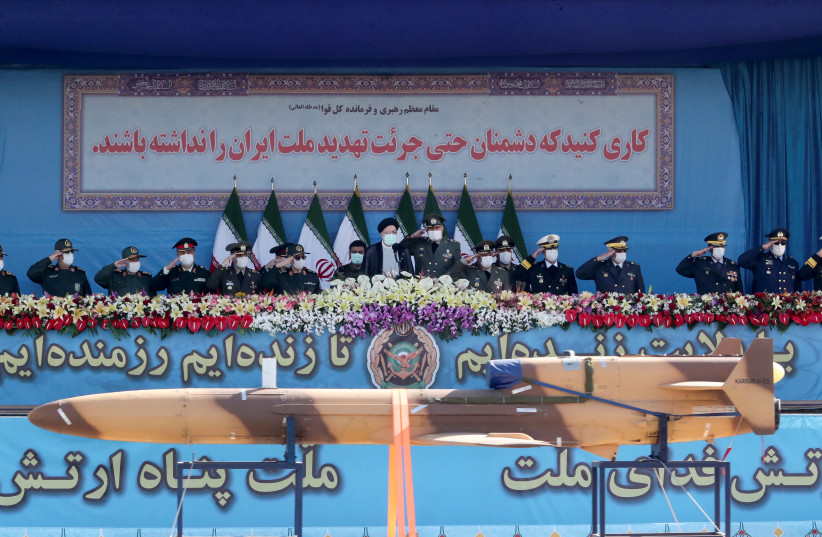Under the guise of reporting on reports by Beirut-based Al Mayadeen, a pan-Arabist satellite news channel, media outlets close to the Islamic Revolutionary Guard Corps (IRGC) have published a list of “sensitive” sites that could be targeted in a future war. The reports listed a number of buildings and sites in Israel in what was clearly intended as a threat.
Iran’s Tasnim News Agency on Monday reported: “In this regard, Al Mayadeen network has published a report on the analysis of Israel’s target bank and the sensitive positions of this regime that can be targeted in any war. At the beginning of this report, the general situation of the Zionist regime at the military level and its equipment has been examined.”
The article included a list of sites in Israel, such as the Knesset, the Prime Minister’s Office and the Defense Ministry. It included what Tasnim characterized as “nuclear sites and facilities.” In the list of “warehouses” and facilities, the report included a Rafael Advanced Defense Systems site in Haifa, the Weizmann Institute of Science in Rehovot and the Technion-Israel Institute of Technology in Haifa.
The report also examined “airports and military and intelligence bases.” It mentioned “civilian” airports, such as Ben-Gurion Airport and Ramon Airport near Eilat. A list of military bases followed.
This appears to be one of the few times that Iranian media close to the regime have so openly published what it claims is a list of Israeli sites that could be targeted in a future war. This appears to point to Iran and its proxies’ estimates of their targeting ability.

In the last conflict with Hamas, the terrorist group claimed to have targeted Ramon Airport. Operations at the airport were briefly suspended during that conflict. Hamas also appeared to target other sites that have infrastructure, using large-scale salvos of rockets to try to overwhelm the Iron Dome air-defense system.
Hezbollah has also made threats regarding targeting Israel’s infrastructure, including threatening gas rigs off the coast and industrial sites near Haifa.
What does Iran mean for this list to do?
The overall context of Iran can be seen as merely bragging and threatening. But it also illustrates the shift in thinking in Tehran and among Iran’s proxy groups. The proxies include Hezbollah, Islamic Jihad, the Houthis in Yemen and members of Hashd al-Shaabi in Iraq.
Recent reports that an Iranian IRGC member linked to Iran’s drone program was killed in Syria, and that Iran wants to move air-defense systems to Syria, show Iran’s possible concerns regarding these latest tensions and threats.
Publishing the kind of list that Iran’s pro-regime media published on Monday, listing sites that Iran thinks are sensitive, can be seen as a message to Israel. It can also be seen as illustrating that Tehran believes the conflict with Israel is entering a strategic stage in which Iran would like to supply proxy groups in Lebanon and Syria with more advanced weapons, including drones and precision-guided munitions, that can target the sites Al Mayadeen listed.
Iran has increased its drone threats against Israel in recent years, and Tehran works closely with Hamas and Hezbollah to try to learn from past conflicts and tensions with Israel.
